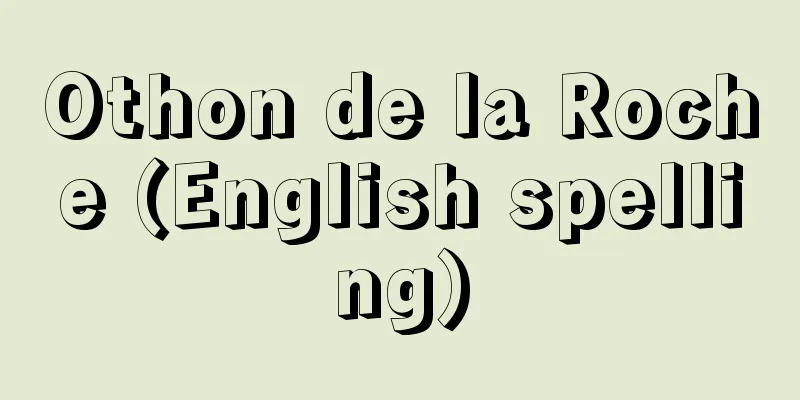Zhang Guo-dao (English name)

|
[Live] Mitsuo 24 (1898). Enishi, Yoshimizu [Died] December 3, 1979. Toronto One of the early leaders of the Chinese Communist Party. His pen name was Tul. While studying at Peking University, he became a member of the Marxism Study Group and was active as one of the student leaders in the May Fourth Movement. In 1921, he attended the Founding Congress of the Communist Party of China as a representative from Beijing, and subsequently held leading positions in the party's central committee. At the First National Congress of the Kuomintang in 1924, he was selected as a Kuomintang candidate for the Central Executive Committee, but he took a far-left stance in the Kuomintang-Communist cooperation, opposing the bourgeoisie's participation in the revolution. From 1930 to 1931, he was the Communist Party's resident representative in the Soviet Union, and when the Provisional Government of the Chinese Soviet Republic was established in Ruijin in 1931, he was elected Vice Chairman. During the Long March from 1934, after joining the First Area Army in 1935, he opposed the policy of moving north to resist Japan decided by Mao Zedong, Zhu De and the Central Party Committee, and insisted on establishing a revolutionary base on the border of Sichuan and Xikang provinces. He split the Red Army and established a new Central Party separate from the Central Party Committee led by Mao Zedong, and stayed in Sichuan and Xikang provinces for about a year. Due to pressure from the Second Area Army, which moved north later, and the mediation of Comintern, he dissolved the new Central Party and resumed his movement north in 1936, and joined the First Area Army in Gansu in October, but he insisted on establishing a base on the Sino-Soviet border, and organized the Western Route Army of over 20,000 men, which advanced into Xinjiang, suffering almost complete annihilation. In 1937, he published a self-criticism and continued to hold important posts in the Shaanxi region, but he opposed the policy of the Central Party Committee, surrendered to the Kuomintang in 1938, and engaged in anti-communist activities, and was expelled from the Central Party Committee. After World War II, he lived in Hong Kong and wrote anti-Communist essays, but later emigrated to Canada. Source: Encyclopaedia Britannica Concise Encyclopedia About Encyclopaedia Britannica Concise Encyclopedia Information |
|
[生]光緒24(1898).江西,吉水 [没]1979.12.3. トロント 中国共産党の初期の指導者の一人。字は特立。北京大学在学中にマルクス主義研究会のメンバーとなり,五・四運動では学生指導者の一人として活動。 1921年中国共産党創立大会に北京代表として出席し,その後党中央にあって指導的地位を占めた。 24年の国民党一全大会で国民党候補中央執行委員に選ばれたが,国共合作には,ブルジョアジーの革命参加に反対して極左的立場をとった。 30~31年共産党ソ連駐在代表,31年瑞金に中華ソビエト共和国臨時政府が樹立されると副主席に選ばれた。 34年からの長征の途中,35年第1方面軍と合流ののち,毛沢東,朱徳ら党中央の決定した北上抗日の方針に反対し,四川,西康省境に革命根拠地をつくることを主張し,紅軍を分裂させ,毛沢東らの党中央とは別個に新中央をつくり,別行動をとって四川,西康両省に約1年とどまった。遅れて北上した第2方面軍の圧力とコミンテルンの調停により,新中央を解消して 36年北上を再開し,10月甘粛で第1方面軍と合流したが,中ソ国境に根拠地をつくるという主張に固執し,2万余の西路軍を編成して新疆に進ませ全滅に近い損害を受けた。 37年自己批判を公表し,陝北地区でなお要職を歴任したが,党中央の方針に反対し,38年国民党に投降して反共工作に従事し,党中央から除名された。第2次世界大戦後ホンコンに住み,評論家として反共的な執筆活動を行なっていたが,のちカナダへ移住した。 出典 ブリタニカ国際大百科事典 小項目事典ブリタニカ国際大百科事典 小項目事典について 情報 |
>>: Sculptor's Chamber (English: Sculptor's Chamber)
Recommend
Sanuki Mountains
A mountain range that stretches from east to west...
Takataka - Gyoko
Year of death: 1455.8.17 Year of birth: 1391 (2nd ...
Chain large pattern type
…(1) Large pattern type: A large pictorial patter...
scamnum
...The batron was also used as a footstool for th...
Disturbance - Gairan
〘noun〙 An external factor that disrupts the operat...
Kaigata [Hot Spring] - Kaigata
Hot springs overlooking Kagoshima Bay in Tarumizu ...
Ibn Isḥāq
He is the author of the oldest complete biography ...
Matsugi family
An official from the Sengoku period to the Edo per...
Guan-shu; Kuan-shu
He is said to have been the son of King Wen of the...
Boxing Day
...As a result, the attitude of nonconformists so...
New Haven
A port and commercial/industrial city on the Long ...
Kitazawa Rakuten - Kitazawa Rakuten
Born: July 20, 1876 in Tokyo [Died] August 25, 195...
Shepherd [species] - Shepherd
A breed of dog. Also known as the German Shepherd....
Kakuzensho - Kakuzensho
A Buddhist book from the Kamakura period. Written...
Uenohara
The former name of a town (Uenohara-machi) was in...









